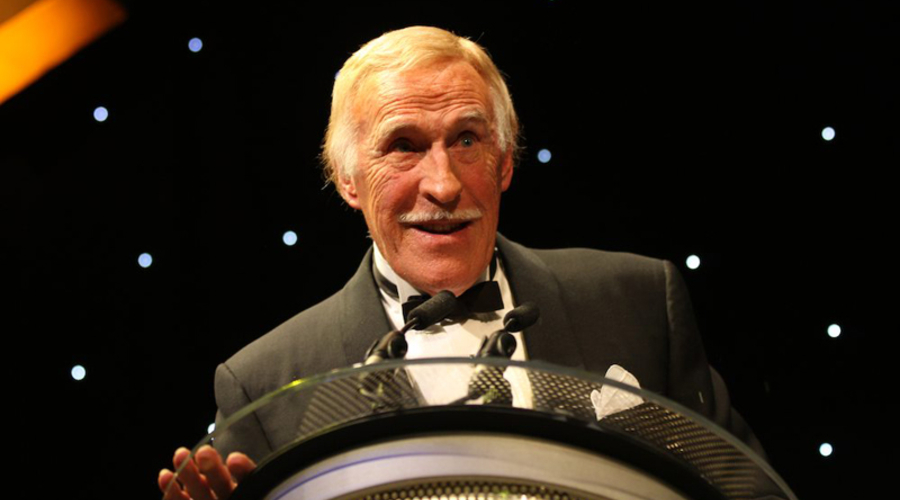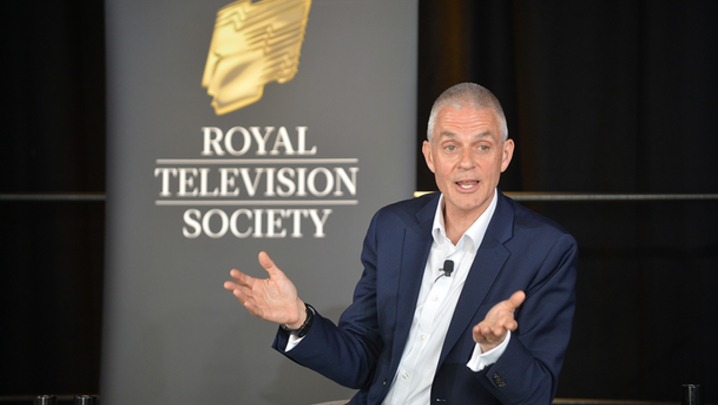Greg Dyke says the memoir of one of British TV’s pioneers is essential reading for today’s TV generation. A review of The Best of Times: A Personal History of Television 1952-1994 by Brian Tesler, published by Kaleidoscope, priced £24.99
It’s only fair that I start with a confession. Given the personal support that Brian Tesler gave me at crucial times in my career, I would have found it very hard to write a critical review of his autobiography, even if it had been a pile of junk written by an 87-year-old, long past his best.
Thankfully, I didn’t face that dilemma. The book isn’t junk – it’s a fascinating account of one person’s journey from the earliest days of television at the BBC through to his retirement. This coincided with the takeover of London Weekend Television (LWT) by Granada in the mid-1990s.
And although it is true that Brian is now well into his eighties he looks 10 years younger. His memory is fine and, if this book is anything to go by, his judgement is as sharp as ever.
In fact, the book should be essential reading for people under 40 working in television today. Then, they would understand not only how the industry started in the 1950s, but just how much it has changed in a relatively short period of time – and not necessarily for the better for programme-makers.
Let me explain. Brian Tesler played a major part in advancing my career back in the 1980s and 1990s, when he successfully supported my candidature, first to be director of programmes at LWT and later to be his successor as the company’s Chief Executive. So, I do owe him big time.
I found the first two-thirds of the book, covering the period when I wasn’t in television and didn’t know Brian, the most interesting part. Largely, this was because Brian was one of the pioneers of television entertainment. He was the man who first put the likes of Wilfred Pickles, Roy Castle and Petula Clark on the box in the early 1950s.
Brian put the band leader Billy Cotton on television at around the same time and also helped his son at the beginning of his BBC career – young Bill Cotton ended up running the whole of BBC Television.
Bill Cotton used to say of Brian: “He taught me everything I know about television. Unfortunately, he didn’t teach me everything he knew.”
Furthermore, Brian was the man who launched Bruce Forsyth’s career, when he gave him the job of hosting ITV’s Sunday Night at the London Palladium. Bruce, of course, went on to have a television career even longer than Brian’s.
Before I worked directly for Brian, I was always told that, while he wasn’t a business genius as the Managing Director of LWT, he was the best judge of a programme. In the time that I worked with him that was certainly true.
If Brian watched a pilot and said that he thought it would work he was usually right. He had an eye for detail, which meant that when he added, “but this or that would improve the show”, you listened and took notice.
Having been one of the early entertainment producers at the BBC in an era when being sent to work in television was still seen by some at the corporation as a demotion, he switched to ITV to work for ABC.
Today’s producers and directors would read Brian’s account of those early years at both the BBC and ITV with envy. You had an idea, suggested it to your boss and, within just a few weeks, it was on the screen.
No months of audience research, no maybe and months of waiting, no interfering by pain-in-the-arse commissioning editors, no messing around by schedulers. There was a slot, you had an idea and you filled the slot. It was that simple.
The book is full of wonderful stories and anecdotes. How Sammy Davis Jnr decided that he wasn’t going to do a show just minutes before he was due in the studio; how The Avengers, starring Diana Rigg and not Nyree Dawn Porter, became a worldwide hit; and how Tesler nearly went to jail because LWT’s Weekend World offended Scottish judges. Instead, he was fined £5,000.
It also covers the history of the various ITV companies in great depth. From Tesler’s account of a whole series of franchise rounds, you understand that, when the IBA Chair Lord Thomson said, “There must be a better way” of allocating ITV franchises, he was not wrong.
Whichever way government and the television authority of the moment tried, there were always cock-ups and injustices. ITV companies that should have lost, instead, survived. Meanwhile, ones that should have survived, lost.
Reading again the details of the last franchise round – when I was Chief Executive of LWT and we won with a bid of £7.5m and our only opponent lost by bidding £34.5m – you realise once again what madness it all was.
Personally, I was fascinated to discover how close I was to not becoming the Chief Executive of LWT – the job nearly went to a bicycle manufacturer from the Midlands. He not only knew fuck all about television but was proud of the fact. Thank you, Brian, for getting rid of him.
Do I have any criticisms of the book? First, I’d say that there are just too many names in it – names that will mean nothing to most people in television today. Second, it doesn’t really get into the ridiculous industrial relations that dominated ITV for most of its history until the early 1990s.
It doesn’t ask the question: why did the ITV companies’ boards and senior executives put up with such nonsense for so long? After all, when they did finally take on the unions, they collapsed like a pack of cards.
But these are small points about a book rich in history, anecdotes and colour. This is a book that tells the story of the development of a glamorous industry and the glamorous people who worked in it.
During my time in television, I was always critical of the “old men” – and they were almost exclusively men – who spent their lives telling us how wonderful the early days of television had been.
Having read Brian’s account of those years, maybe I was too critical. He makes them sound a lot of fun.
Greg Dyke was formerly Chief Executive of LWT, Chair of Channel 5 and Director-General of the BBC.







